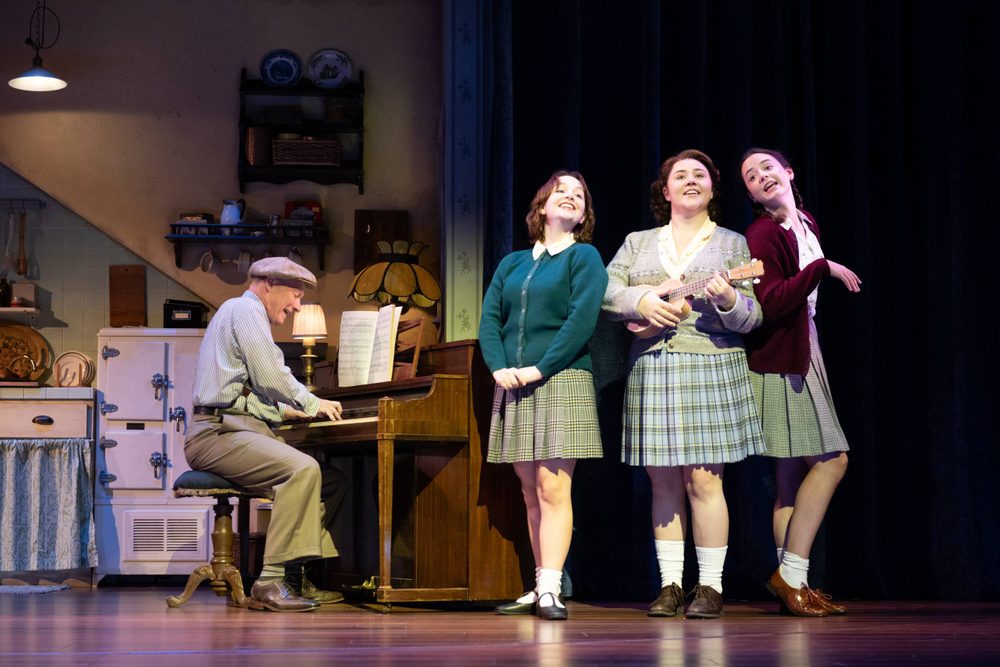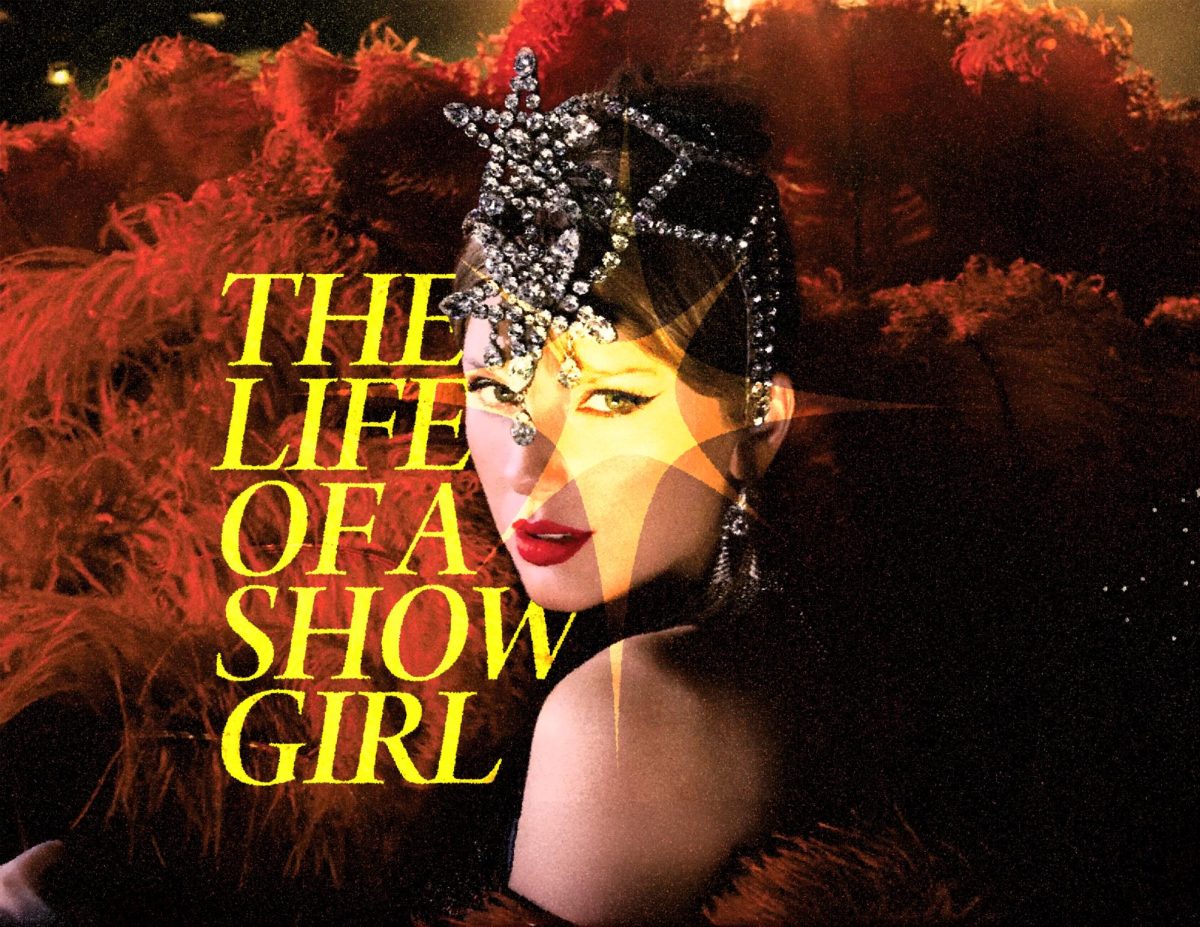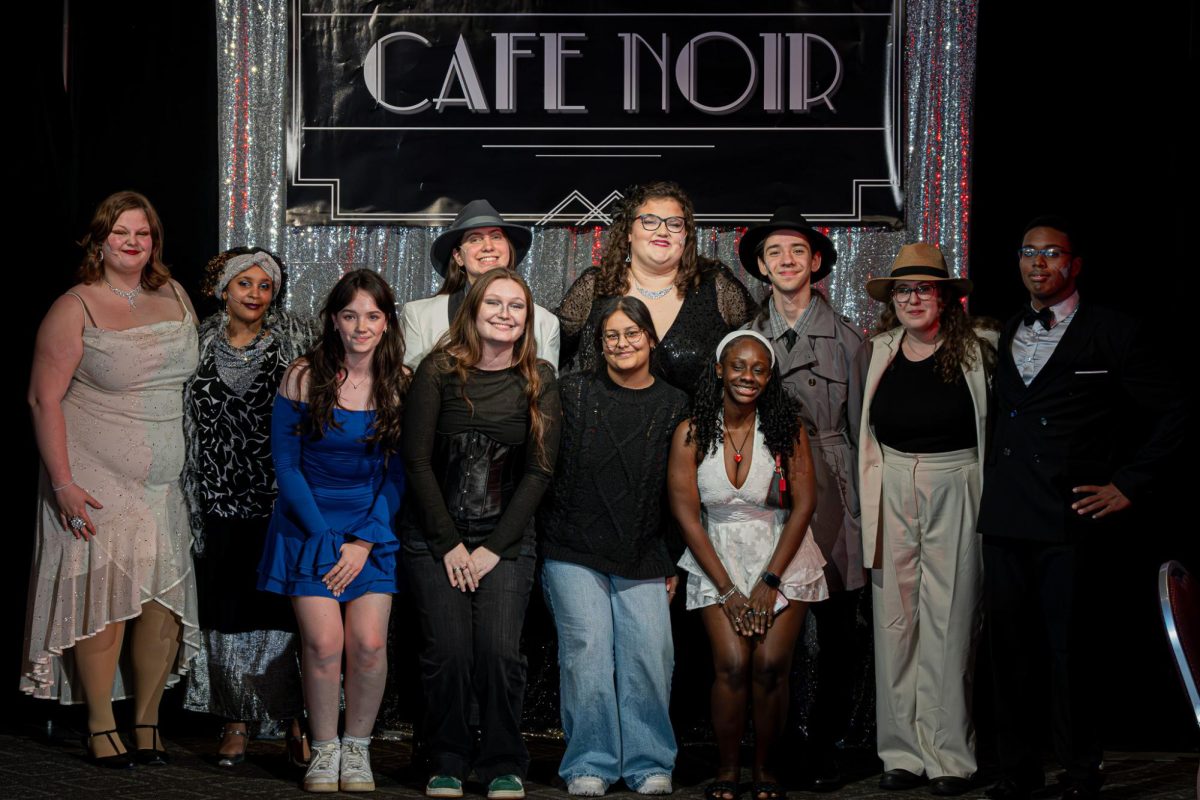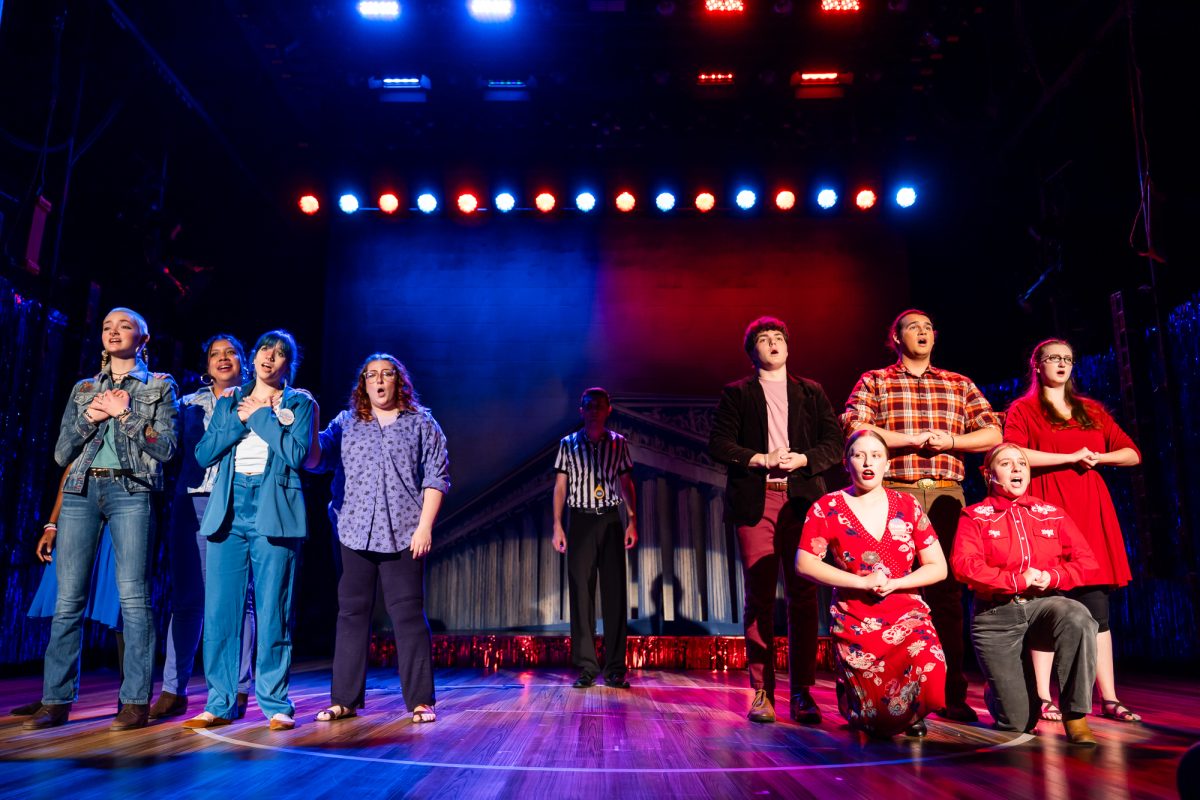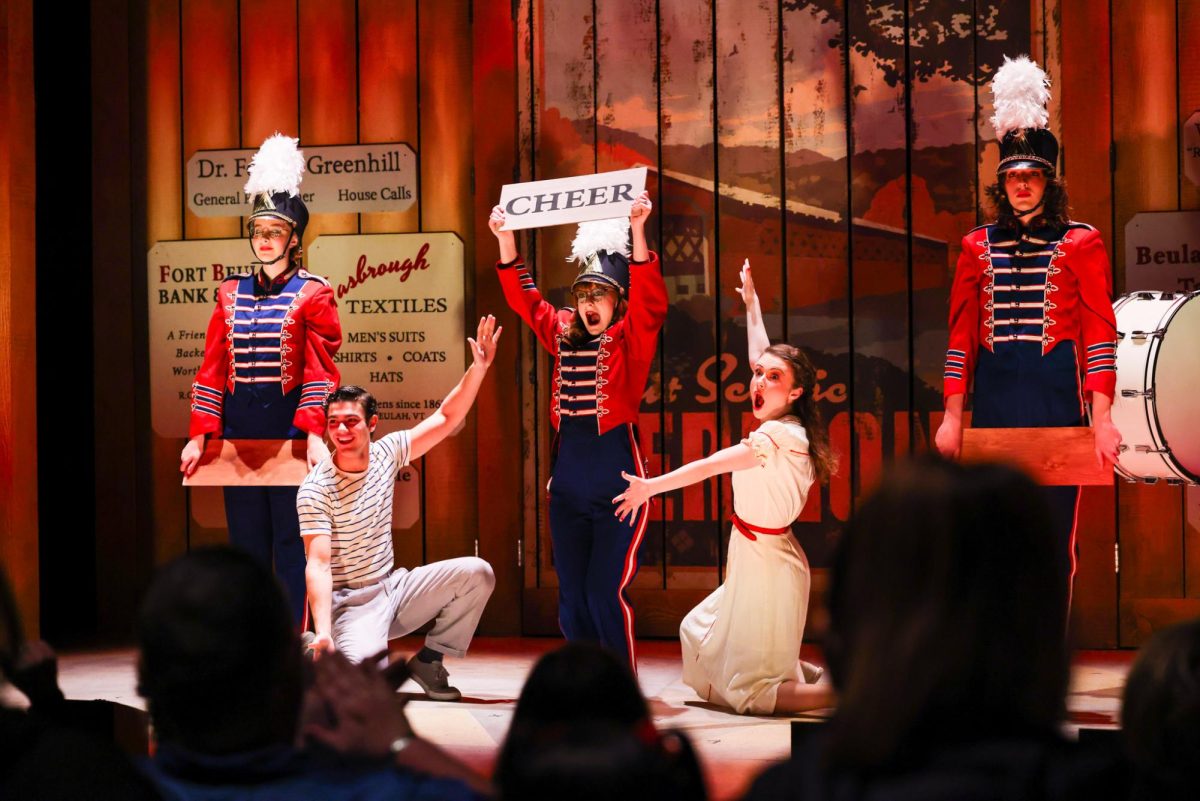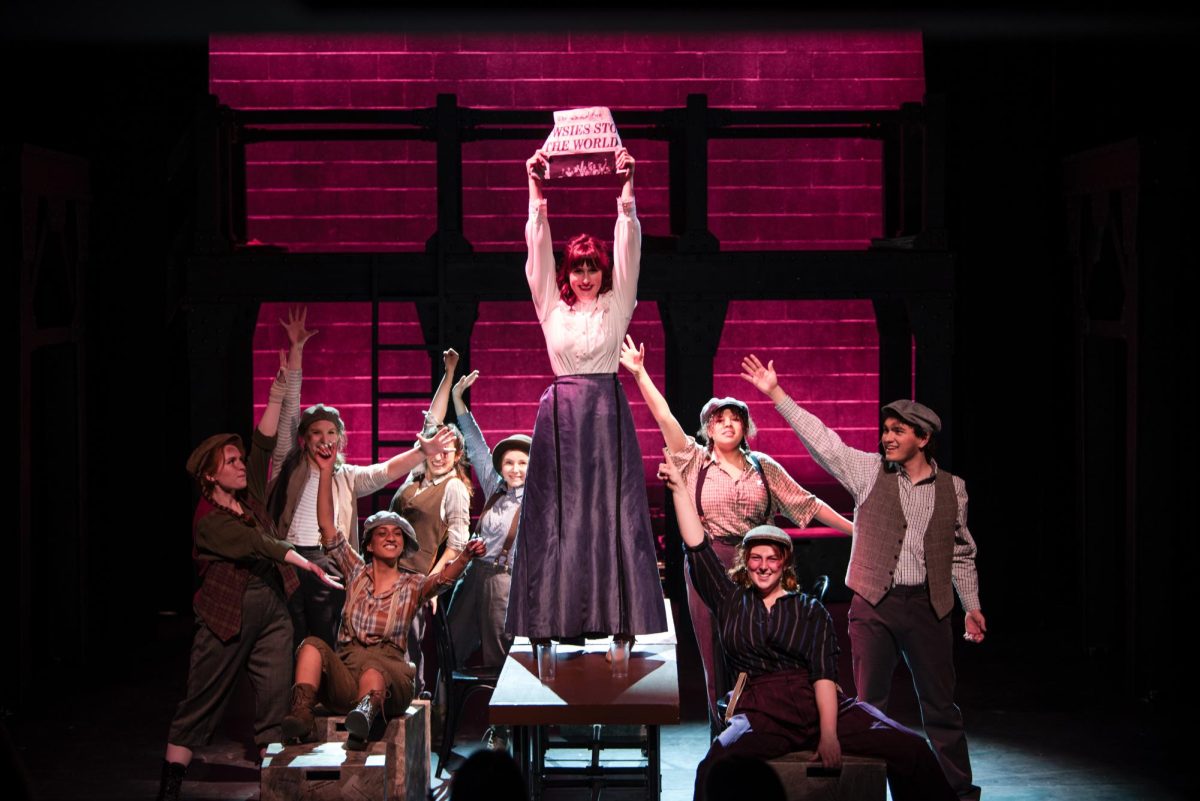There are many things that life prepares people for: growing up, getting old and unfortunately, death. What life does not prepare people for is what it is like to be face-to-face with a dying parent, especially when the family’s dynamic has been fractured ever since a sibling moved out. The Huntington Theater Company’s production of “The Hills of California” opened on Sept. 12 and tells a bittersweet story of lost innocence and grief in a multitude of ways. Written by Jez Butterworth and directed by Lorretta Greco, the duo portrays the storyline and message incredibly well. Set in Blackpool, England, in the summer of 1976, the play follows Joan Webb, Gloria Webb, Ruby Webb and Jillian Webb who are working on reuniting as a complete family for the first time since the spring of 1955. Jillian, the youngest, has stayed behind in their mother Veronica’s hotel; The Seaview Hotel.
The show begins with a frazzled Jillian walking around the parlor as she waits to hear about her mother’s condition. Here, it is revealed that it would be best for Veronica’s health for a doctor to be called to help her pass peacefully. Concerned, Jillian insists that they wait for her siblings to arrive, explaining that Joan is stuck in California but insists that she will be joining them. Two of the three absent sisters show up, and it’s shown that Gloria has a clear distaste for Joan in her older years, while Jill and Ruby cling on to the positive memories, proceeding to relive some of their favorite childhood memories.
While Gloria struggles with her ever-optimistic younger sisters, the play shifts to a flashback of the spring of 1955, where the young sisters are rehearsing in front of their mother. The quartet is heavily coached by their mother who draws clear inspiration from the Andrews Sisters.
Joan, the rebel, is shunned to the corner during their rehearsal, setting up some of the harsh messages in the play as she overhears the conversation between her mother and one of the tenants. This sets up for the later flashbacks, as the audience finds out that a scouting agent wants to meet the girls. Once Veronica has properly scolded Joan, she sends her back to her siblings. Joan shares with the girls that she feels guilty for being late to that night’s rehearsal and promises that she will be there whenever they need her in the future.
Back in the present, the girls recall memories as they look at long-discarded items, like sheet music and a ukulele a young Gloria once played. They discuss what it was like with their father, and the comedic points start to shine in again, as the girls reveal their mother never told anyone the same version of how their father died more than once.
Setting up for the later running conflict of blips in memory causes the girls to believe one thing rather than the truth. They never truly knew the reality of their father and began telling themselves variations of stories to fit their narrative inside their own heads. Gloria is frustrated, reminded of a past she no longer wants to be associated with, as she tells the girls she never played ukulele, and yells at Jillian, who had shared what their mother’s doctor had recommended regarding her treatment and that she was procrastinating because of Joan’s absence.
Intermission leaves the audience craving more, as unanswered questions drive for the uncertainty of the future. The second and third acts are a wonderful experience where the story unfolds further.
The play poetically touches on how an uprooted youth affects the relationships of a family, and the guilt one has for allowing events to occur while knowing there were no other options. It allows audience members to question how far someone would go in order to allow even just the slightest chance at changing the circumstances of the life one has. Gloria and Joan’s strained relationship is revealed on a deeper level, and shows how someone who once was your idol can be forever changed as reality sets in.
An interesting way the story showcases the personalities and feelings of each other is done via the costumes. The audience can pick up on who feels as though they don’t belong just by the color scheme of each outfit.
In the present times, Jillian is seen with grey and muted tones, showing that she feels lost, stuck in the shadow of her mother, as she is the youngest of the family who evidently chose to stay with their mom. She feels out of place in contrast to her siblings, who all wear brightly colored clothing. Whereas in the flashbacks, Gloria is the one who is in the muted hues, a stark contrast to her present bright orange clothing, where she is more grounded as a person.
Gloria, in the flashbacks, seems outcast and living in the shadows of her siblings. Ruby remains in her color throughout both the present and past, showing that she has remained similar throughout the years, which implies that she never truly felt out of place in the family. Joan, as a child, wears blue, representing her loyalty to her siblings and her authority within the sibling group. While trying to stay away from spoiling the later acts, the adult Joan appears in multi-colored clothing, which can be interpreted to represent how she does not know who she is as a person anymore, and her own uncertainty about her identity.
The set design is also incredibly beautiful, and it is interesting to see the technical aspects come into play as they switch between the past and the present. While the set is stationary for a majority of the play, taking place in the main parlor, the addition of the rotation to the private parlor, where most of the past flashbacks take place, is insanely cool.
At first, when the play starts, it is confusing as there is a tiki bar in the middle of a table and chairs set up, but as the story develops, it starts to make sense. With the inclusion of technical elements, like the rotary set and the smoke included in the second act, the set does a wonderful job of adding to the story as a whole.
Grecco acknowledges the love she has for the story and this production.
“I adore this stunning, truly sublime play from one of our greatest living writers, and I love the ferocity of Veronica Webb, who sees the road to transcendence for her four daughters through the power of performing a song,” wrote Greco.
Greco’s ability to portray the hardships the family faces is beautifully intricate. It is clear just how passionate she is about the play as a whole. “The Hills of California” is a must-see, as it represents just how important it is to have a strong support system in difficult times. It is a tear-jerking depiction of the struggles one person can face after relinquishing an important part of themselves for the sake of others.
“The Hills of California” will run at The Huntington Theatre until Oct. 12.


